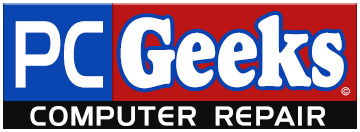Tips for Keeping Your Computer Running Smoothly
In today’s digital age, our computers have become an essential part of our lives. From work to entertainment, we rely on them for just about everything. But what happens when your trusty computer starts slowing down or acting up? Don’t worry; we’ve got you covered. In this blog post, we’ll share some easy-to-follow tips to keep your computer running smoothly. Plus, we’ll discuss why choosing a professional can be a wise decision when things go awry.

Tips for Keeping Your Computer Running Smoothly
Regularly Update Software and Operating System: Keeping your software and operating system up to date is crucial. Updates often include important security patches and performance enhancements. Set your computer to install updates automatically if possible.
Install Antivirus Software: Protect your computer from malware, viruses, and other online threats by installing reputable antivirus software. Regularly scan your system for potential issues.
Clean Up Your Hard Drive: Over time, your hard drive can become cluttered with unnecessary files. Use built-in tools like Disk Cleanup (Windows) or Disk Utility (macOS) to clean up temporary files, caches, and old downloads.
Organize Your Files: A cluttered desktop and disorganized files can slow down your computer. Create folders and categorize your files logically. Delete or move files you no longer need.
Manage Startup Programs: Disable unnecessary startup programs that launch when you boot your computer. This can significantly improve your computer’s startup time.
Upgrade Hardware: If your computer is still struggling, consider upgrading its hardware. Adding more RAM or switching to a solid-state drive (SSD) can give your computer a significant performance boost.
Proper Shutdown and Restart: Avoid leaving your computer on for extended periods. Restarting your computer can help clear out temporary files and refresh the system.
Monitor Temperatures: Overheating can lead to performance issues and even hardware damage. Keep an eye on your computer’s temperature and ensure proper ventilation.
Why Choose a Professional
While the tips above can help you maintain your computer’s performance, there are times when you’ll need the expertise of a professional. Here’s why:
Complex Issues: Some computer problems go beyond the scope of regular maintenance. Hardware failures, data recovery, and complex software issues often require the skills of a professional.
Time and Expertise: Professionals have years of experience and training. They can quickly diagnose and fix issues that might take you hours or even days to resolve on your own.
Data Protection: If your computer has critical data, attempting to fix it yourself can risk data loss. Professionals follow best practices to ensure data is safely backed up and protected during repairs.
Warranty Considerations: DIY repairs can void warranties on your computer or its components. Professionals can perform repairs without risking warranty coverage.
Prevent Further Damage: Attempting to fix a computer issue without the right knowledge can lead to further damage. Professionals ensure that the root cause of the problem is addressed correctly.
Your computer is a valuable tool, and keeping it running smoothly is essential for your productivity and peace of mind. By following the maintenance tips mentioned in this blog, you can proactively care for your computer. However, when you encounter more complex issues or need expert guidance, don’t hesitate to seek the help of a professional.
Contact us at PC Geeks and our professional team can save you time, protect your data, and ensure your computer stays in tip-top shape. Remember, a well-maintained computer is a happy computer!
